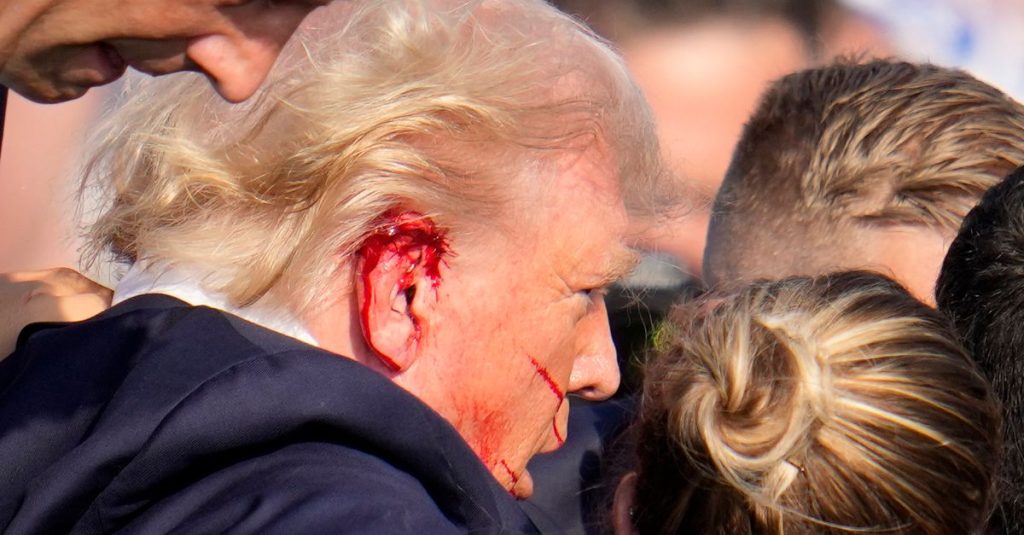The FBI confirmed that former President Donald Trump was indeed struck by a bullet in his ear during an assassination attempt at a Pennsylvania rally. This statement followed conflicting accounts about the nature of Trump’s injuries after a gunman opened fire on July 13. Trump and his allies had expressed frustration with the lack of information provided by law enforcement agencies involved in the investigation. The FBI’s delay in confirming the nature of Trump’s wound further strained tensions between the former president and federal law enforcement.
Despite photos showing evidence of a projectile speeding past Trump’s head and the account given by Trump himself, questions about the extent of his injuries persisted. His former White House doctor, Ronny Jackson, released a letter detailing the wound a week after the shooting, but federal law enforcement agencies had yet to confirm the information. The FBI’s Director Christopher Wray had initially suggested that the wound may have been caused by shrapnel, sparking further controversy. The FBI eventually clarified that the shooting was indeed an attempted assassination of Trump that resulted in his injury, along with the death of a bystander and injuries to other victims.
Jackson defended Trump’s account of being struck by a bullet, stating that any suggestion otherwise would fuel conspiracy theories. He emphasized his experience as a Navy combat physician and concurred with the assessment and treatment provided at the hospital where Trump was initially treated. Jackson criticized those who continued to doubt the validity of the shooting and the severity of Trump’s injuries. Trump’s campaign spokesperson also dismissed calls for the release of medical records, alleging that such requests were part of a smear campaign against the former president.
Senator Lindsey Graham, a close ally of Trump, called on Wray to correct his earlier statements and clarify that Trump had been hit by a bullet. Trump himself criticized Wray and the FBI, accusing them of damaging the agency’s credibility with misleading comments. Wray, who was appointed by Trump in 2017, has faced scrutiny throughout his tenure, especially from Trump, who reportedly considered firing him as his presidential term ended. Trump’s ongoing feud with the FBI and other federal agencies has highlighted divisions between the former president and the nation’s top law enforcement institutions.
The conflicting accounts and delays in confirming the nature of Trump’s injury have fueled conspiracy theories and political tensions following the assassination attempt. Trump’s allies have rallied around him, challenging the FBI’s credibility and insisting on the accuracy of Trump’s version of events. The ongoing controversy surrounding the shooting and Trump’s injuries reflects broader divisions within American politics and the fraught relationship between Trump and federal law enforcement agencies. The FBI’s affirmation that Trump was hit by a bullet in the assassination attempt seeks to provide clarity and put to rest speculation surrounding the incident.


